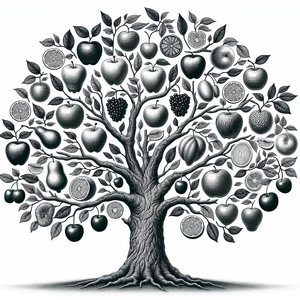Japanese Culinary Ventures in NYC: A Fusion of Tradition and Innovation

The journey of Japanese cuisine in New York began in the mid-20th century, with the introduction of sushi in the 1960s. At that time, sushi was a novelty for many New Yorkers, but it quickly gained popularity, paving the way for a broader appreciation of Japanese culinary traditions. The landscape of Japanese food has evolved dramatically since those early days, and today it encompasses a diverse array of offerings, including sushi, ramen, yakitori, and kaiseki dining. The increasing interest in health-conscious eating has also elevated Japanese cuisine's profile, as it is known for its fresh ingredients, balanced flavors, and emphasis on umami—the fundamental taste that characterizes many traditional Japanese dishes. As a result, Japanese cuisine has become an attractive choice for health-savvy New Yorkers seeking delicious yet wholesome dining options.
Innovative Chefs Leading the Charge
A significant factor in the burgeoning Japanese culinary scene in NYC is the emergence of innovative chefs who artfully blend traditional techniques with modern sensibilities. One such pioneer is Chef Masaharu Morimoto, renowned for his ability to fuse Japanese and Western cuisines. His flagship restaurant, Morimoto NYC, is a stunning representation of his culinary vision, featuring signature dishes such as sushi pizza and black miso cod that highlight his creativity while respecting traditional Japanese flavors. Another notable figure is Chef David Bouhadana, the mastermind behind Sushi by Bou. Bouhadana has gained acclaim for his unique omakase experience, which serves high-quality sushi in an intimate setting. His approach emphasizes seasonal ingredients and showcases the artistry involved in sushi-making. By appealing to a younger demographic yearning for both casual and refined dining experiences, Bouhadana has successfully carved out a niche in the competitive NYC food scene.
Cultural Adaptation and Authenticity
While innovation is essential, many Japanese restaurants in NYC remain steadfast in their commitment to preserving authenticity. Sushi Nakazawa, led by Chef Daisuke Nakazawa, exemplifies this balance by offering a traditional omakase experience that pays homage to the craft of sushi-making. Nakazawa's training under the legendary Jiro Ono in Tokyo enables him to bring a level of craftsmanship and dedication that resonates with sushi aficionados. His restaurant has garnered Michelin recognition, further establishing its reputation among sushi lovers. Moreover, the adaptation of traditional cuisine to suit the New York palate has birthed exciting culinary creations. Ramen shops like Ippudo and Totto Ramen have tailored their broths and toppings to cater to local preferences while still adhering to the essence of traditional ramen. For instance, Ippudo is known for its rich tonkotsu broth, while Totto Ramen offers a lighter shoyu base. This ability to evolve while maintaining core values is what sets these culinary ventures apart, allowing them to thrive in the diverse and competitive landscape of New York.
Community Engagement and Sustainability
Beyond their culinary excellence, Japanese restaurants in NYC are increasingly focused on community engagement and sustainability. Many establishments prioritize sourcing ingredients locally, embracing sustainable seafood practices, and reducing their environmental footprint. Blue Ribbon Sushi, for example, emphasizes responsible sourcing while offering a diverse menu that celebrates both classic and contemporary Japanese dishes. The restaurant collaborates with local farms and initiatives aimed at minimizing food waste, reflecting a growing trend among culinary ventures to contribute positively to their communities. This commitment to sustainability also extends to the broader community, as many Japanese restaurants participate in local events, culinary festivals, and charity initiatives to foster a sense of connection and support for their neighborhoods.
The rise of Japanese culinary ventures in New York City is a testament to the dynamic nature of food culture in a global city. With innovative chefs leading the charge, a steadfast commitment to authenticity, and a focus on community engagement, these restaurants are not only tantalizing taste buds but also weaving a rich tapestry of cultural exchange. As NYC continues to embrace the flavors of Japan, the culinary landscape will undoubtedly keep evolving, offering endless opportunities for exploration and enjoyment. Through this vibrant fusion of tradition and innovation, Japanese cuisine has solidified its place as a beloved staple in the eclectic New York dining scene, inviting both locals and visitors to experience its depth and diversity.
Sushi Chef
Sushi Nakazawa, Morimoto NYC, Sushi by Bou
Core Responsibilities
Prepare high-quality sushi, sashimi, and other Japanese dishes with precision and artistry.
Maintain cleanliness and organization of the sushi station, ensuring compliance with health and safety regulations.
Collaborate with kitchen staff to create new sushi rolls and seasonal specials that reflect both traditional and modern Japanese culinary practices.
Required Skills
Extensive knowledge of sushi-making techniques and traditional Japanese cuisine.
Strong knife skills and attention to detail in presentation.
Ability to work efficiently in a fast-paced kitchen environment.
Ramen Chef
Ippudo, Totto Ramen, Chuko Ramen
Core Responsibilities
Craft and perfect various ramen broths, including tonkotsu, shoyu, and miso, while experimenting with toppings and flavor profiles.
Oversee the preparation of fresh noodles and ensure consistency in texture and flavor.
Engage with customers to provide recommendations and educate them about different ramen styles.
Required Skills
Background in Japanese cooking techniques, particularly noodle making and broth preparation.
Creativity in developing new dishes and adapting traditional recipes to local tastes.
Strong communication skills for customer interaction.
Japanese Pastry Chef
Sweet Touch, Kinokuniya's Café, various upscale Japanese restaurants
Core Responsibilities
Create a variety of traditional and contemporary Japanese desserts, such as mochi, dorayaki, and matcha-infused pastries.
Develop seasonal dessert menus that celebrate Japanese flavors while appealing to local preferences.
Ensure all pastries are visually appealing and meet the establishment's quality standards.
Required Skills
Experience in pastry arts with a focus on Japanese confections.
Knowledge of flavor profiles unique to Japanese desserts, including the use of ingredients like matcha and adzuki beans.
Artistic skills for plating and presentation.
Culinary Manager (Japanese Cuisine)
Blue Ribbon Sushi, Ramen Lab, other renowned Japanese restaurants
Core Responsibilities
Oversee daily kitchen operations, manage staff, and ensure the quality of food service in a Japanese restaurant setting.
Collaborate with chefs to develop menus that highlight seasonal ingredients and respect traditional Japanese cooking methods.
Monitor inventory, order supplies, and manage food costs to optimize profitability.
Required Skills
Proven experience in restaurant management, preferably in Asian or Japanese cuisine.
Strong leadership and team management skills.
Understanding of food safety regulations and culinary trends.
Food and Beverage Director (Japanese Cuisine)
High-end hotels with Japanese restaurants, culinary groups, restaurant chains specializing in Japanese cuisine
Core Responsibilities
Develop and implement food and beverage concepts that align with the brand's identity and appeal to target customers.
Conduct market research to identify trends and opportunities for menu innovation in Japanese dining.
Manage vendor relationships and negotiate contracts for quality ingredients and supplies.
Required Skills
Extensive experience in food and beverage management, with a focus on Asian or Japanese culinary trends.
Strong financial acumen and ability to analyze sales data to inform business decisions.
Excellent communication and interpersonal skills for staff training and guest engagement.


